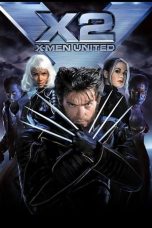- Source: Big man (anthropology)
A big man is a highly influential individual in a tribe, especially in Melanesia and Polynesia. Such a person may not have formal tribal or other authority (through for instance material possessions, or inheritance of rights), but can maintain recognition through skilled persuasion and wisdom. The big man has a large group of followers, both from his clan and from other clans. He provides his followers with protection and economic assistance, in return receiving support which he uses to increase his status.
Big man "system"
The American anthropologist Marshall Sahlins has studied the big man phenomenon. In his much-quoted
1963 article "Poor Man, Rich Man, Big Man, Chief: Political Types in Melanesia", Sahlins uses analytically constructed ideal-types of hierarchy and equality to compare a larger-scale Polynesian-type hierarchical society of chiefs and sub-chiefs with a Melanesian-type big-man system.
The latter consists of segmented lineage groups, locally held together by faction-leaders who compete for power in the social structure of horizontally arranged and principally equal groupings (factions). Here, leadership is not ascribed, but rather gained through action and competition "with other ambitious men".
Powers and responsibilities
A big man's position is rarely secured as an inherited position at the top of a hierarchy. Rather, big men commonly compete with one another in an ongoing process of reciprocity and re-distribution of material and political resources. Spreading the word of his power and capabilities - thereby establishing reputation and recognition among outsiders - requires the delivery of resources as tribute to relevant big men of other groups. Simultaneously, he must secure resources for his own followers in order to maintain their satisfaction and confidence in his leadership. As such, the big man is subject to a transactional order based on his ability to effectively balance these mutually opposed tasks.
Concepts of the role and what it entails are relatively fluid and can vary between groups. Typically, any authority a big man may possess is neither formally defined nor universally recognized by others. His position is usually not heritable and his descendants are not guaranteed the right to succession or any otherwise elevated status.
In the Island of Malaita in Solomon Islands the big man system is dying away, but the big man system can be seen at the political level. Every four years in the Solomon Islands' national elections, the system can be clearly seen, especially in the Melanesian Islands.
In Papua New Guinea
The first use of the term may be found in the English-translation of Dreißig Jahre in der Südsee (1907) by Richard Parkinson. The term may be often found in many historical works dealing with Papua New Guinea. Andrew Strathern applies the concept of big-men to a community in Mount Hagen, Papua New Guinea.
Traditionally, among peoples of non-Austronesian-speaking communities, authority was obtained by a man (the so-called "big man") recognised as "performing most capably in social, political, economic and ceremonial activities". His function was not to command, but to influence his society through his example. He was expected to act as a negotiator with neighbouring groups, and to periodically redistribute food (generally produced by his wives). In this sense, he was seen as ensuring the well-being of his community.
Such a system is still found in many parts of Papua New Guinea, and other parts of Melanesia.
See also
Big man (political science) – Corrupt, autocratic leader
Cult of personality – Idolization of a leader
Elder (administrative title) – position or title conferred as authority based on being older or wiserPages displaying wikidata descriptions as a fallback
Gothi – Priest or tribal Scandinavian leader
Great man theory – Theory that history is shaped primarily by extraordinary individuals
Moka exchange – Ritualized system of exchange in the Mount Hagen area, Papua New Guinea
Monarchy – Form of government ruled by a monarch; or a polity with this form of government
Political strongman – Authoritarian political leader
Rom baro – Romani tribal leader
Ulmen (Mapuche)
References
Further reading
"The Big Men: Chris Bowler, Ben Smyth, Alex Thomas, and John Zhang." Essay by John Zhang in the 18th issue of Scroop.
Kata Kunci Pencarian:
- Marshall Sahlins
- Amitabh Bachchan
- Argentina
- Ras manusia
- Suku Lani
- Timothée Chalamet
- Suku Dani
- Kekerasan terhadap perempuan
- Somaliland
- Simpanse
- Big man (anthropology)
- Big man
- Big man (political science)
- Crime boss
- King
- History of anthropology
- Anthropology
- Elder (administrative title)
- Political anthropology
- 2000 Solomon Islands coup d'état
Longing (2024)
Death Race (2008)
Silver and the Book of Dreams (2023)
Diary of a Wimpy Kid (2010)
New York, I Love You (2008)
Smurfs: The Lost Village (2017)
Knives Out (2019)
No More Posts Available.
No more pages to load.














